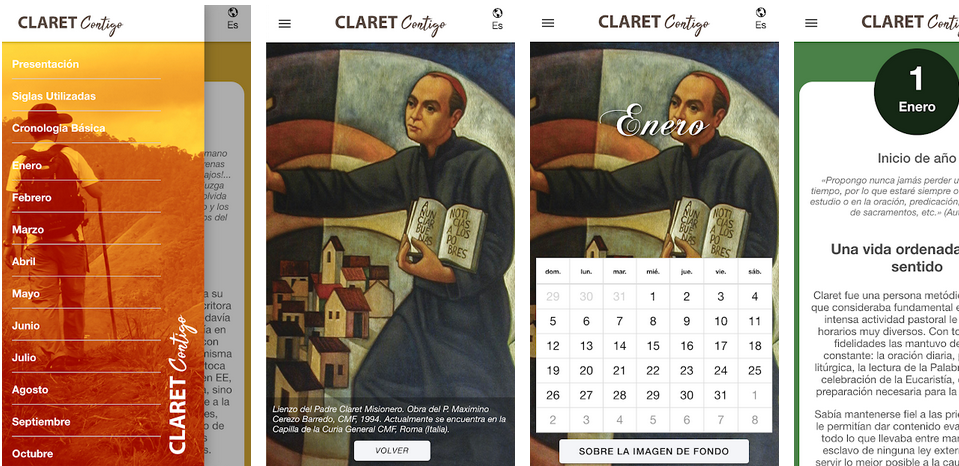SEEK GOD’S WILL
You already know what Mary meant in Claret’s life. It was she who formed him, as she did Jesus, in the forge of her heart. Claret looks at Mary and learns humility from her. A heart which loves God excels in humility, which is inherent to it. Mary, the humble one, is for God, and forges Jesus in her heart, the ‘gentle and humble of heart’ (Mt 11:29). St Paul also calls for aspiration to the higher gifts, to love, highlighting that love is not envious or boastful (cf. 1Cor 12:31; 13:4)
It is characteristic of a friend, of one who loves, to attend to the will of the beloved: knowing it he can indulge it. But how do you know the will of the beloved? How do you know what God wants? Claret shows us three paths, three sure attitudes:*Obedience. Start by listening and end by pursuing obedience. Listening is carried out principally through prayer. Acting according to God’s will is the proof of having prayed. Mary, the praying one, exclaims, “Let it be done to me as you have said.” (Lk 1:38)
*Necessity. Surely Claret understood necessity as lack of the essentials for life. He who loves God seeks his will, is nourished by it (cf. Jn 4:34), and experiences joy, like St Teresa: ‘Whoever has God lacks nothing; God alone suffices.’
*Love. It is love which Paul urges, as does Claret, love which drives one to mission, to do the Father’s will and to teach others to do likewise. He who loves, knows God and is attuned to his will, because God is love (cf. 1Jn 4:7-8). For Claret, a son of the Heart of Mary, beginning with Jesus who came to do the Father’s will, is on fire with love, burns and sets everyone alight with the fire of divine love (cf. Aut 494).
Do I listen to the Word to the point of living it, to the point of becoming a disciple? What necessities do I feel are vital? Where do I satisfy them? Am I on fire with love, such that it burns and sets others alight?






